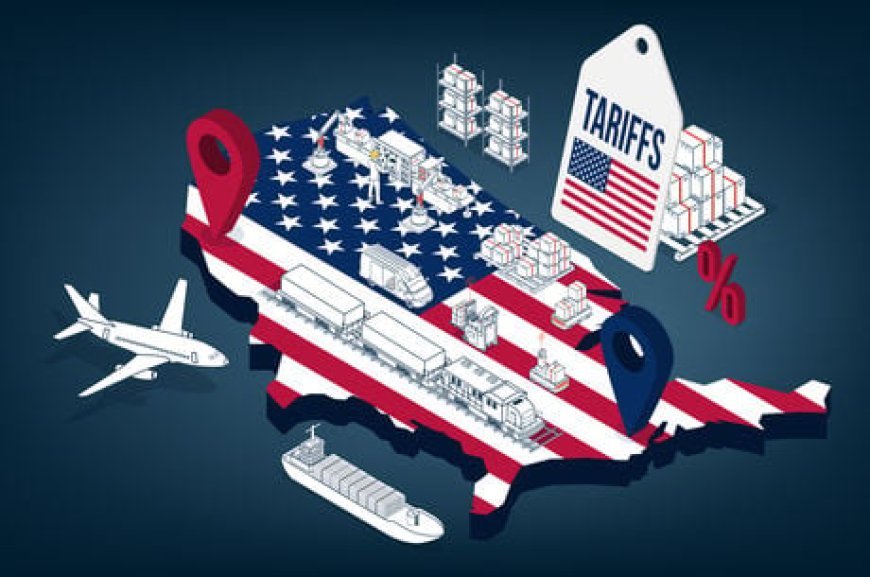4 Things Hoteliers Need to Know About Tariffs

In the ever-evolving landscape of global trade, tariffs have emerged as a formidable challenge for hoteliers. As these financial barriers reshape the market, understanding their implications is crucial for those in the hospitality industry. Hotel giants have already noted the possible shifts in revenue due to trade policies.
For hoteliers, navigating this complex environment requires strategic planning and innovative solutions. The rise in costs associated with tariffs has made securing traditional financing more challenging, prompting a shift towards private credit options. This approach offers the flexibility needed to keep projects viable and maintain profitability.
Moreover, adapting to changing consumer behavior and collaborating with industry partners can provide a competitive edge. By leveraging insights from industry leaders and exploring new financing avenues, hoteliers can position themselves for success in this dynamic market. As tariffs continue to influence the global trade landscape, staying informed and proactive is essential for thriving in the hospitality sector.
1. Understand the Economic Landscape
Stay up to date with industry news and trends. Recent insights from industry leaders like Howard Marks, co-founder and co-chairman of Oaktree Capital Management, and Warren Buffett, chairman and CEO of Berkshire Hathaway, highlight the unpredictability and potential impact of tariffs on both domestic and international markets.
The problem is that in the real world, and especially in economics, there are second- and third-order consequences that must be considered
, writes Howard Marks in his memo, Nobody Knows (Yet Again). Economics is the science of choices and is fraught with trade-offs. That’s certainly true in the area of trade and tariffs.
Additional industry news echoes this sentiment, suggesting that tariffs could act as a double-edged sword, impacting both domestic and international markets. On the hotelier side, CEOs have also noted that while domestic demand remains strong, the global trade war poses risks to revenue growth.
This can mean a few things for hoteliers. For example, hoteliers can take this as an opportunity to capitalize on the strong domestic market to maintain revenue streams. Hoteliers will also need to address challenges posed by the trade war, such as declines in international tourism.
Industry leaders are also leveraging their expertise to navigate these challenges, ensuring continued growth. This involves strategic planning and collaboration with financial partners. Insights from leaders like Charles Oswald, President and CEO, of Aperture Hotels, can guide decision-making in complex situations. In addition, thought leaders tend to make comments or provide insight as big changes occur, so keeping up with them means keeping up with industry changes. Staying informed through industry newsletters and podcasts can also help identify emerging trends and potential challenges.
2. Consider How Tariffs Impact Construction Costs/Timelines
Hoteliers and hotel investors need to consider potential impacts from a broader economic level when planning future projects. Impacts on hoteliers include decreased international travel, increased costs due to tariffs, and economic uncertainty. Financial strains require developers to reassess project feasibility and timelines. For example, developers are implementing strategic adjustments such as sourcing materials locally to mitigate the impact of tariffs, which are leading to cost increases for materials, directly affecting hotel construction and renovation budgets. These changes are essential to maintain project momentum and profitability. Hoteliers should consider these adjustments and how they impact investments or projects by reassessing timelines, perhaps through scenario planning and looking into ways to mitigate costs, such as sourcing materials locally.
3. Adapt to Changing Consumer Behavior
Tariffs and trade policies are influencing consumer behavior, with potential declines in both business and leisure travel. For example, CEOs from Marriott and Hyatt have reported shifts in booking patterns and travel demand. Look, it’s obviously a choppy environment
, said Hyatt CEO Mark Hoplamazian during an earnings call in May 2025, in which he also mentioned growing volatility in the economy and financial markets.
Specifically, hoteliers can adjust pricing strategies based on real-time demand by utilizing technology such as advanced forecasting tools. Focusing on efficiency and operational processes, such as adopting efficient technologies, can help preserve margins.
While trade policies don't directly impact hoteliers' finances through tariffs, they can contribute to broader uncertainties that might affect short-term travel spending and ultimately affect investor reactions to hospitality investments.
4. Explore Private Credit Financing Options
As traditional financing becomes more challenging, private credit offers a viable alternative. This approach provides flexibility and financial support in uncertain times, like AVANA’s Oaktree venture, which increases funding that will provide SMEs in the commercial real estate sector with access to capital in the form of bridge and construction loans for all CRE products. By working with experienced financial partners, hoteliers can secure the necessary capital to navigate the evolving market dynamics.
Private lending or co-lending, particularly through bridge loans, presents opportunities for hotel owners to reposition or construct new properties. For example, AVANA’s Oaktree private credit partnership formed a $250MM joint venture that impacts hoteliers by providing new funding avenues and more flexible financing options, and aims to empower small businesses and drive local economic growth.
As tariffs continue to shape the global trade landscape, hoteliers must remain vigilant and adaptable. By understanding these dynamics, they can position themselves for success in a challenging environment.






